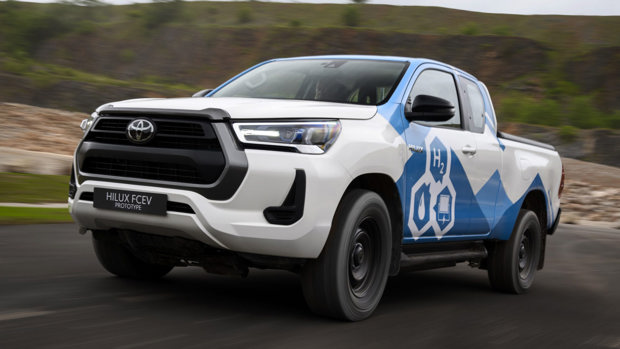Hydrogen Hilux one step closer to launch

Plans to launch a hydrogen-powered Toyota Hilux have got one step closer to fruition as 10 prototype models have entered a testing and evaluation phase.
Hand-built by Toyota Manufacturing UK in Burnaston, Derbyshire, a total of five of the 10 prototypes have begun rigorous field testing to evaluate safety, performance, functionality and durability, generating test drive data in real-world situations.
The remaining five will be used for promotional purposes, customer and media demonstrations, including at the forthcoming Paris Olympics and Paralympic Games.
Toyota says the Hydrogen Hilux Fuel Cell Project will contribute to its next generation of fuel cell technology, with increased driving range and vehicle lifecycles.

The first prototype vehicle was unveiled by Toyota and its consortium partners in September 2023, supported by UK government funding. The prototype uses Toyota’s latest second-generation fuel cell technology already seen in the Mirai saloon to transform the ICE Hilux into a fuel cell electric vehicle.
It uses three high-pressure hydrogen fuel tanks, mounted within the ladder frame chassis with a 182PS electric motor on the rear axle and zero tailpipe emissions other than pure water. The fuel cell Toyota Hilux has an expected driving range of up to 372 miles and offers a higher payload and towing capability than other zero-emission alternatives.

